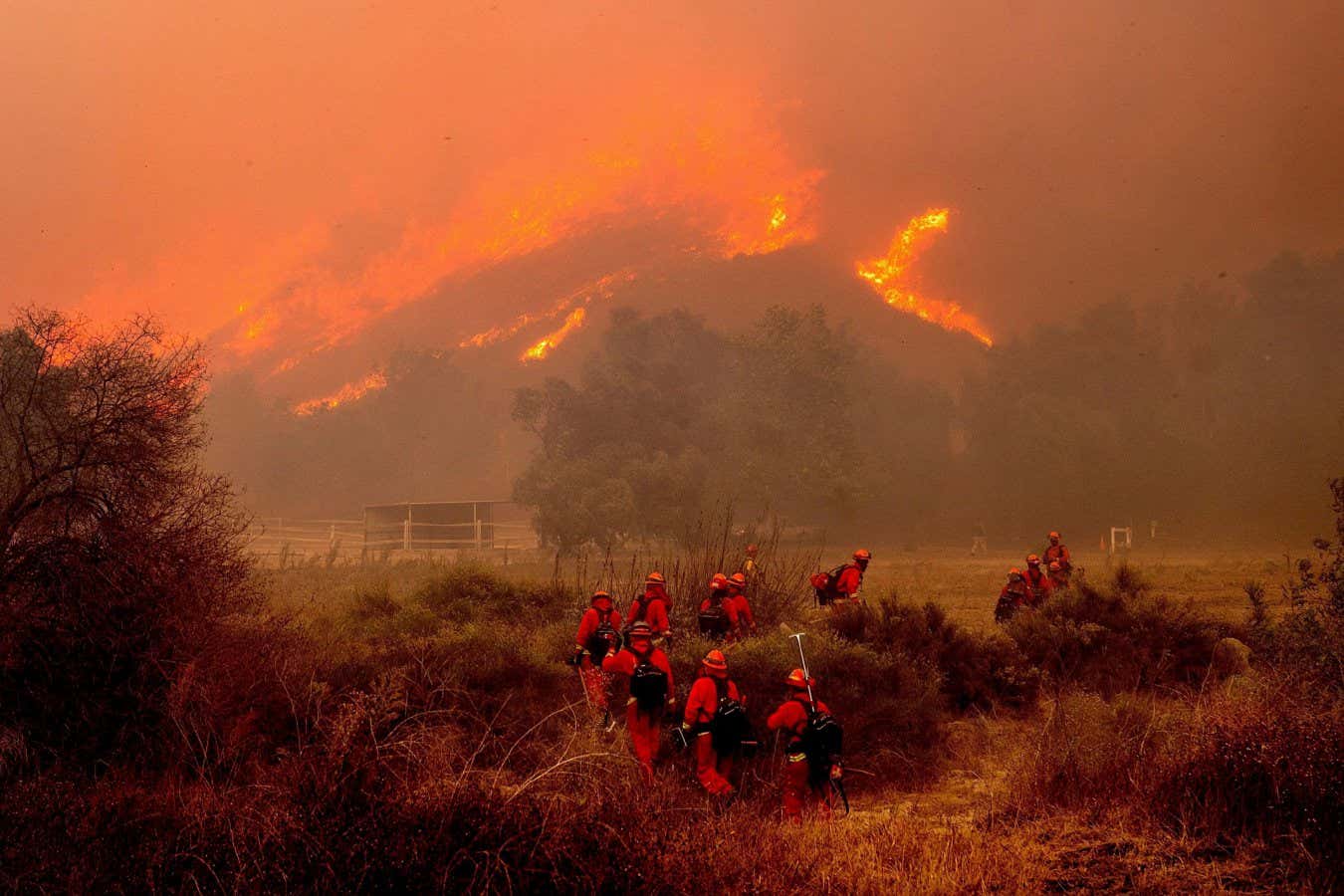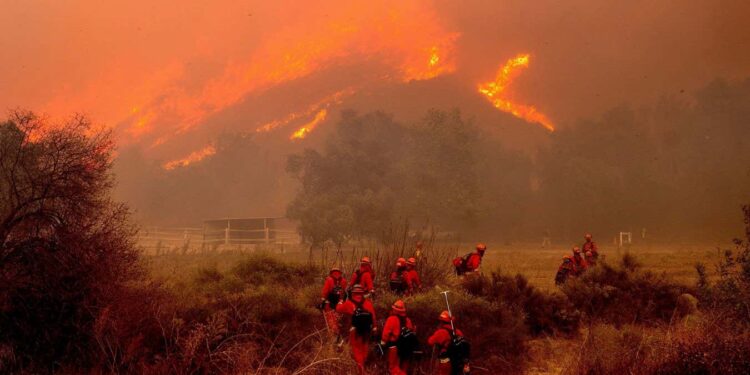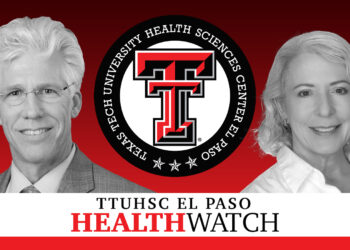
Global warming is making wildfires more frequent and more destructive
Noah Berger/Associated Press/Alamy
The world has warmed even more than we thought, according to a new dataset suggesting the temperature rise since pre-industrial times is 6 per cent higher than previous estimates.
That would put us on track to breach the Paris climate goal of keeping warming below 1.5°C sooner than feared, in 2028 rather than the 2030-2035 timeframe usually cited by scientists.
2024 was the first calendar year to see global average temperatures exceed 1.5°C, following a period of record-breaking warmth that took climate scientists around the world by surprise. Although on its own it doesn’t amount to a breach of the Paris goal – that requires a sustained rise – it provoked worries that temperatures are rising faster than expected.
To try to check how we are doing, Gottfried Kirchengast and Moritz Pichler at the University of Graz in Austria used existing global temperature datasets to calculate a new estimate of global mean surface temperature (GMST) for the period 1850-2024. GMST is the key parameter the Intergovernmental Panel on Climate Change uses to gauge global warming.
The pair also developed a new calculation method to convert this GMST, which is a blend of sea surface temperatures and air temperatures, into a single global surface air temperature (GSAT), which they say is a more accurate reflection of warming than the parameter used in IPCC reports.
“The benchmark record takes the best of conventional temperature datasets and brings in this new refinement,” says Kirchengast. This reduces the uncertainty range and shows the world is warming slightly faster than conventional methods indicate, he says, bringing forward the expected crossing point for the 1.5°C threshold.
Kirchengast argues this new, more accurate GSAT record could be used to assess global progress towards the goals of the Paris Agreement. The idea was to create “one reference dataset for global warming against pre-industrial levels”, he says.
Under the Paris treaty struck in 2015, nations collectively promised to limit global warming to “well below” 2°C above pre-industrial levels, and to pursue “efforts to limit the temperature increase to 1.5°C above pre-industrial levels”.
Those targets are generally judged against a 20-year average temperature, but researchers disagree on how best to calculate this. Using only historical observations would result in a 10-year time lag in confirming a breach of one of the targets, so growing numbers of scientists are proposing the use of a rolling average, drawing on a blend of observational data and predictions.
Kirchengast and Pichler suggest using their new benchmark GSAT record, alongside climate model predictions of future temperatures, to produce a real-time global warming level to measure progress against the Paris goals. Their paper puts the current warming level at 1.39°C above pre-industrial levels.
But Duo Chan at the University of Southampton, UK, says a GSAT record isn’t the best metric to use to judge the rate of warming. “GSAT hasn’t been the primary metric used in IPCC discussions, climate targets, communications or most observations,” he points out.
GMST, on the other hand, scales consistently with other changes in the climate system such as sea level rise, coral reef bleaching, rainfall changes and other impacts, he says. “For high-level accountability, GMST remains a sufficiently informative yardstick,” he argues.
Andrew Jarvis at Lancaster University in the UK says there is an “urgent” need for the scientific community to agree on a single method for judging progress against the Paris targets. “The emerging array of estimates is actually undermining the policy evaluation,” he argues.
Topics:
Source link : https://www.newscientist.com/article/2482510-the-global-temperature-may-be-even-higher-than-we-thought/?utm_campaign=RSS%7CNSNS&utm_source=NSNS&utm_medium=RSS&utm_content=home
Author :
Publish date : 2025-06-02 10:00:00
Copyright for syndicated content belongs to the linked Source.








